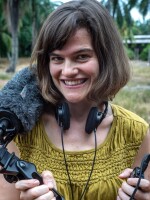NOEL KING, HOST:
Here's some brand-new guidance from the CDC. If you're going to get on a plane to travel for the holidays, the agency strongly recommends you wear a mask. Also wear one on buses, taxis, trains and in rideshares. NPR's Michaeleen Doucleff has been looking into how well masks work on airplanes.
MICHAELEEN DOUCLEFF, BYLINE: For months now, health officials in Hong Kong have meticulously tested and tracked all passengers who land in the city, so they know which passengers boarded a plane infected with COVID-19 and whether or not they infected anyone else. David Freedman is an infectious disease doctor at the University of Alabama at Birmingham. He's been analyzing this data with a specific focus on one airline.
DAVID FREEDMAN: Emirates Airlines, where, since about April, they've had very, very rigid masking.
DOUCLEFF: Emirates not only requires masks but ensures passengers wear them. Freedman examined the airline's flights to Hong Kong in June and July. What he found is telling. During that time, Emirates had five flights with at least seven infected people on board. And yet on all five flights, no one else on board got infected.
FREEDMAN: Those are flights that, you know, should be high risk and where there was no transmission.
DOUCLEFF: On another flight out of Dubai, 27 infected people boarded a single plane for an eight-hour trip. Guess how many other passengers got sick?
FREEDMAN: There appears to have been two in-flight transmissions.
DOUCLEFF: Two. Freedman says that without the masks, he would have expected many more cases. In fact, scientists have not documented one super-spreading event on a plane since airlines began to require masks. Together, all this data suggests masks are working.
FREEDMAN: There's encouraging evidence from a number of flights that masking does help greatly, but it would be nice to study it better.
DOUCLEFF: You feel like the risk on the plane with masks is low.
FREEDMAN: The circumstantial evidence is that risk is low if you have rigid masking.
DOUCLEFF: And that last part is key. To keep the risk low on planes, everyone needs to keep the mask on the entire flight. Why? Linsey Marr at Virginia Tech says planes have excellent air ventilation systems, which can remove coronavirus particles from the air about every six minutes.
LINSEY MARR: So the only opportunity to breathe in virus that's in the air is if it gets to you before it goes through that ventilation system. And so that's only going to happen if you're sitting close to the person who's sick.
DOUCLEFF: Because of planes' ventilation systems, your risk comes almost entirely from the people sitting around you. That risk is lower when they have on masks.
MARR: If someone is sick, they could be releasing virus into the air. And the mask blocks that. It prevents the virus from getting out in droplets and aerosols.
DOUCLEFF: A mask also reduces how much virus you breathe in. And it stops big drops of spit from hitting your mouth and nose. For these reasons, Marr says, when she flies, she carefully chooses which mask to wear.
MARR: If I'm flying, I use my best mask. It has a couple of layers of HEPA filters that remove more than 99% of particles. On the plane, I want the best there is.
DOUCLEFF: So if you have access to an N95 mask or even a P100 respirator, use that. Just make sure it fits properly. And keep in mind...
MARR: It doesn't protect your eyes, though. So this is where you might want to consider wearing a face shield or goggles or some other kind of eye protection.
DOUCLEFF: Also remember to keep surfaces around you clean, avoid touching your face and be quiet. When we talk, we can emit 10 times more virus particles than when we're silent. Finally, Freedman says, don't forget to wear a mask and socially distance throughout the whole travel process, including while boarding and exiting the plane.
FREEDMAN: I mean, you can control people getting on. Getting off is just chaos 'cause everybody rushes off.
DOUCLEFF: For this reason, Freedman says, he and his wife aren't flying this year for Thanksgiving.
Michaeleen Doucleff, NPR News. Transcript provided by NPR, Copyright NPR.


